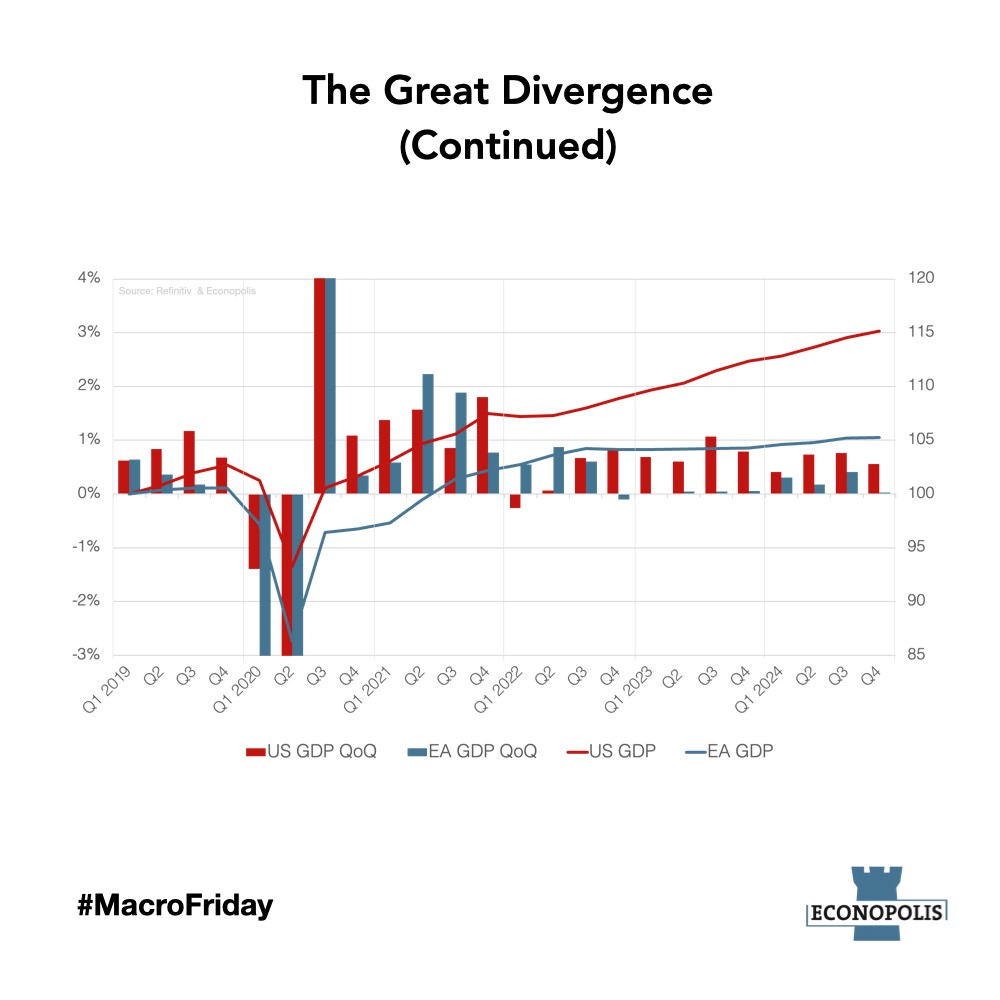#MacroFriday: The Great Divergence
‘Es ist die Wirtschaft, Dummkopf!’
Growth Paths Between the European and American Economies Continued to Diverge in 2024


This week’s data releases included the first estimates of Q4 economic growth in the US and the Eurozone. The US economy maintained its solid growth trajectory, expanding by 0.56% in Q4 and 2.8% over the course of 2024. Strong consumer spending was the main driver of growth, as US consumers continued to spend vigorously despite persistent inflation (+4.2% compared to 2023). However, real GDP growth was lower than in Q3, as weaker imports and investment acted as headwinds in Q4.
While the US economy expanded, the Eurozone economy remained stagnant, showing no growth in Q4. The European economy has been stuck in stagnation for nearly three years. Both Germany (-0.2% QoQ) and France (-0.1% QoQ) saw their economies contract in the last quarter of 2024. In France, the economic boost from the Olympics in Q3 faded, while Germany’s ongoing industrial recession continued to weigh heavily on growth. German politicians now head into the February elections with two consecutive years (!) of negative economic growth. In contrast, Belgium’s economy grew by 0.2% in Q4, while Portugal (+1.5%) and Spain (+0.8%) were the bright spots of the Eurozone, posting solid quarterly growth.
Yet another round of weak European economic data, coupled with no signs of an imminent rebound, makes it clear that action is needed. Yesterday, European Commission President Ursula von der Leyen outlined a compass and an agenda aimed at boosting European competitiveness in the coming years. Deregulation and innovation, particularly through more integrated capital markets, should serve as key pillars to revitalize the European economy. However, time is running out, as the gap between the European and American economies continues to widen.
This week’s central bank decisions were widely expected and already priced in by market participants. While the Federal Reserve kept interest rates unchanged, the European Central Bank (ECB) cut its main policy rate by 25 basis points in an effort to support growth in the Eurozone. However, with rates still at 2.75%, monetary policy remains too restrictive to provide meaningful relief for the European economy.
comments powered by Disqus